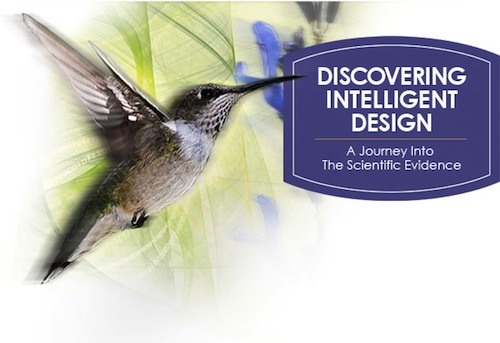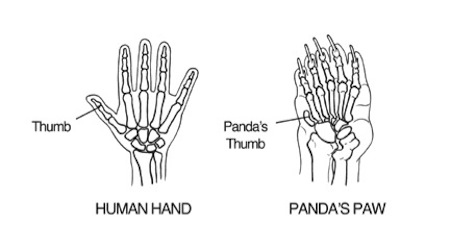 Education
Education
 Evolution
Evolution
 Intelligent Design
Intelligent Design
From Discovering Intelligent Design: Two Thumbs Up

Excerpted from Discovering Intelligent Design, by Gary Kemper, Hallie Kemper, and Casey Luskin; Chapter 12, "Poorly Designed Arguments":
Another example of an allegedly poor design is the panda’s thumb. Pandas obtain their nourishment largely from bamboo, which they strip before eating, using an extra appendage on their front paws. This appendage contains a bone but is not an opposable thumb like ours.
In his book The Panda’s Thumb, evolutionary paleontologist Stephen Jay Gould argued that "odd arrangements and funny solutions are the proof of evolution — paths that a sensible God would never tread." Likewise Miller claims that an intelligent designer would have "been capable of remodeling a complete digit, like the thumb of a primate, to hold the panda’s food."
Are Gould and Miller right to contend that the panda’s thumb is a "clumsy" feature that is "not necessarily well-designed"?
Figure 12-1 portrays a human hand, and a panda’s front paw. Notice that the paw seems to have six digits. The one on the far left, however, is not a true finger but an elongated wrist bone equipped with muscles to hold and strip bark from bamboo.

Figure 12-1: Human Hand and Panda’s Paw.
It turns out that the panda’s thumb is not a clumsy design. A study published in Nature used MRI and computer tomography to analyze the thumb and concluded that the bones "form a double pincer-like apparatus" thus "enabling the panda to manipulate objects with great dexterity."
The critics’ objection is backed by little more than their subjective opinion about what a "sensible God" should have made.
To buy or learn more about Discovering Intelligent Design, the first comprehensive curriculum to present the scientific evidence for intelligent design for both young people and adults, visit our website at DiscoveringID.org!
